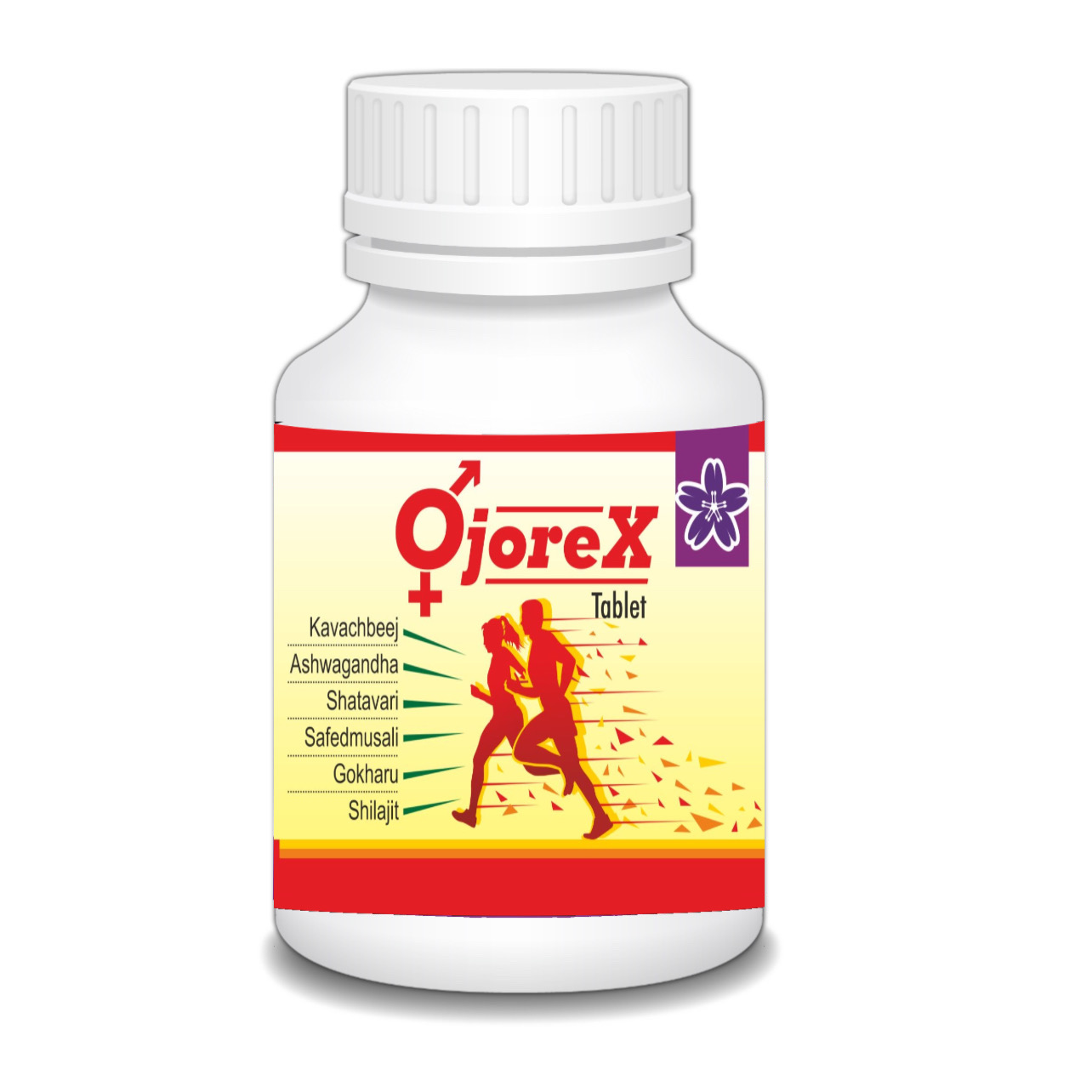+918048074104

This is your website preview.
Currently it only shows your basic business info. Start adding relevant business details such as description, images and products or services to gain your customers attention by using Boost 360 android app / iOS App / web portal.
In Ayurveda, there are several herbs and practi...

In Ayurveda, there are several herbs and practices that are believed to support overall vitality and may indirectly contribute to hormonal balance, including testosterone. While Ayurveda does not specifically focus on "boosting" testosterone levels, it aims to promote overall well-being and balance in the body. Here are some Ayurvedic approaches that are commonly recommended for supporting hormonal health: 1. Ashwagandha (Withania somnifera): Ashwagandha is an adaptogenic herb that is often used in Ayurveda to support vitality, reduce stress, and promote overall well-being. It is believed to have a positive impact on reproductive health and may indirectly support hormonal balance. 2. Shilajit: Shilajit is a mineral-rich substance that is commonly used in Ayurvedic preparations for its rejuvenating properties. It is believed to support energy, vitality, and overall wellness. 3. Gokshura (Tribulus terrestris): Gokshura is an herb known for its potential benefits for male reproductive health. It may support healthy testosterone levels and overall sexual health. 4. Balanced Diet: Following a balanced and nutritious diet is crucial for overall health, including hormonal balance. Include a variety of fresh fruits, vegetables, whole grains, lean proteins, and healthy fats in your diet. 5. Stress Management: Chronic stress can negatively impact hormonal balance. Practice stress reduction techniques such as yoga, meditation, deep breathing exercises, and mindfulness to reduce stress levels. It's important to note that the effectiveness of these Ayurvedic approaches can vary from person to person, and individual results may vary. It is advisable to consult with a qualified Ayurvedic practitioner who can assess your specific constitution, imbalances, and recommend personalized herbal formulations or treatments based on your unique needs. If you have concerns about testosterone levels, it's important to consult with a healthcare professional for a proper diagnosis and to discuss appropriate medical interventions if needed. They can provide guidance and advice tailored to your specific situation. Ayurveda, the traditional system of medicine from India, offers a holistic approach to promoting overall health and balance, including hormonal health. In Ayurveda, testosterone is seen as an important hormone for vitality, energy, and strength. While Ayurveda does not focus specifically on increasing testosterone levels, it aims to promote hormonal balance and support overall well-being. Here are some Ayurvedic recommendations for maintaining hormonal health, including testosterone: 1. Maintain a Healthy Lifestyle: - Get regular exercise: Engage in physical activities that suit your body type and constitution. Exercise helps improve circulation, metabolism, and overall vitality. - Follow a balanced routine: Maintain a regular sleep schedule and ensure adequate rest and relaxation to support hormone production and balance. 2. Diet and Nutrition: - Eat a nutritious diet: Include fresh, whole foods, emphasizing a variety of fruits, vegetables, whole grains, lean proteins, and healthy fats. - Favor foods that support reproductive health: Certain foods are considered beneficial for hormonal balance, such as ghee (clarified butter), nuts, seeds, spices like ashwagandha, shatavari, and garlic. However, individual dietary recommendations may vary based on specific imbalances and constitution. 3. Stress Management: - Practice stress reduction techniques: Chronic stress can impact hormone levels. Incorporate stress-management practices like yoga, meditation, deep breathing exercises, and mindfulness to reduce stress and promote hormonal balance. 4. Ayurvedic Herbal Support: - Ashwagandha (Withania somnifera): Ashwagandha is an adaptogenic herb that is often used in Ayurveda to support vitality, reduce stress, and promote hormonal balance. - Shatavari (Asparagus racemosus): Shatavari is known for its rejuvenating properties and is considered beneficial for reproductive health and hormonal balance. It's important to note that Ayurvedic approaches are individualized, and it's recommended to consult with a qualified Ayurvedic practitioner Dr Ravindra Borade to receive personalized guidance based on your specific constitution (Prakriti) and imbalances. They can assess your condition, recommend suitable herbs, and provide a tailored treatment plan to support hormonal health. www.paramayurved.com If you have concerns about testosterone levels, it's advisable to consult with a healthcare professional for a proper diagnosis and discuss appropriate medical interventions if needed. Testosterone is a hormone primarily produced in the testicles (in males) and ovaries (in females), although smaller amounts are also produced in the adrenal glands. It plays a crucial role in various aspects of the body's development, function, and overall health. Here are some key uses and functions of testosterone: 1. Sexual Development: Testosterone is responsible for the development of sexual characteristics during puberty in males, such as the deepening of the voice, growth of facial and body hair, and development of the male reproductive organs. It also contributes to libido (sex drive) in both males and females. 2. Reproductive Function: Testosterone plays a vital role in sperm production and maintaining fertility in males. In females, it helps in maintaining healthy reproductive tissues and plays a role in sexual desire. 3. Muscle Mass and Strength: Testosterone is involved in the development and maintenance of muscle mass and strength. It promotes protein synthesis, which helps build and repair muscle tissues. 4. Bone Health: Testosterone plays a role in the maintenance of bone density and strength. It helps prevent osteoporosis and supports overall bone health. 5. Mood and Cognitive Function: Testosterone influences mood, cognition, and overall mental well-being. It can impact energy levels, motivation, and concentration. 6. Red Blood Cell Production: Testosterone stimulates the production of red blood cells in the bone marrow, helping to maintain healthy blood counts. 7. Metabolism: Testosterone can influence metabolism, including fat distribution and the regulation of insulin sensitivity. It's important to note that testosterone levels naturally decline with age, and low testosterone levels can lead to symptoms such as reduced libido, fatigue, mood changes, and decreased muscle mass. In cases of clinically diagnosed low testosterone (known as hypogonadism). www.puneayurved.com

